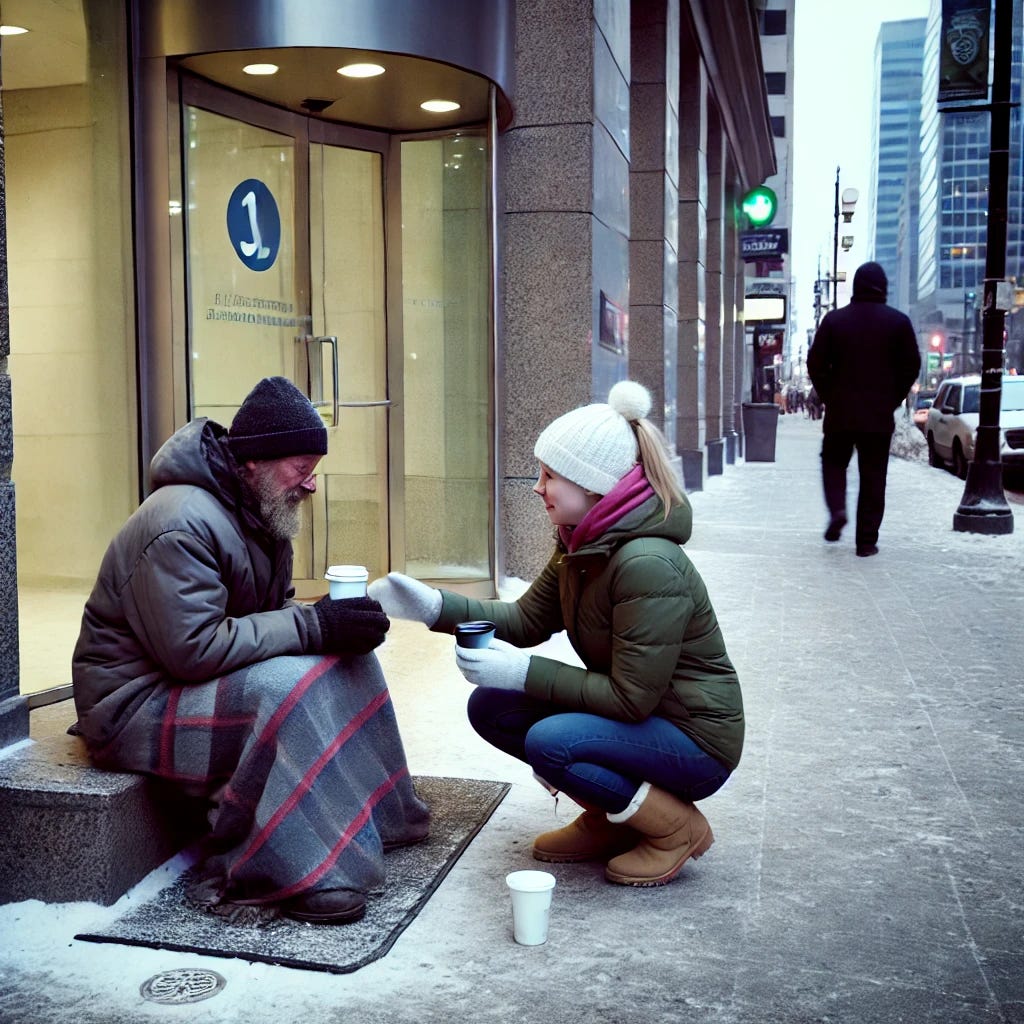Imagine this: It’s a cold winter morning in the heart of a bustling city. At the entrance to a downtown office building, a security guard stands watch as a homeless man sits nearby, trying to stay warm. The guard’s job is clear—protect private property. But what if, instead of a guard, the person stationed at that door was a social worker?
This isn’t just a hypothetical. It’s a vision for a healthier society—one that prioritizes care over control, support over suppression. And it starts with a simple yet radical idea: we need more social workers, not more security guards.
The Problem With Policing Crisis
Cities across North America are in the grip of a housing crisis, compounded by skyrocketing mental health needs and rising inequality. Public spaces—parks, libraries, malls, and even doorways—are now contested zones where people experiencing homelessness or mental health crises intersect with the rest of society.
The response from many cities has been predictable: hire more security. This approach treats people in crisis as a threat to be contained, rather than as humans in need of support. It’s a model rooted in fear, one that prioritizes property and order over compassion and care.
But what if we could flip the script?
Health as the Foundation of Authority
Social authority doesn’t have to be about enforcing rules. It can—and should—be rooted in fostering health. Social workers embody this principle. They’re trained to address the root causes of crisis, connect people to resources, and support individuals in navigating complex systems.
If we invested in placing social workers where we now deploy security, the impact could be transformative:
Immediate, Human-Centered Responses
When someone is sleeping in a park or struggling outside a storefront, a social worker can offer support rather than issuing a warning. They can connect individuals to emergency housing, mental health care, or addiction services.
Long-Term Community Health
Social workers are equipped to address the broader systems that lead to crisis in the first place. By building trust and relationships, they help individuals transition from survival to stability, benefiting the entire community.
Prevention Over Reaction
Security guards and police are reactive; they’re called after something has already gone wrong. Social workers are proactive, preventing small crises from becoming large ones.
A Network of Care
This vision requires more than just individuals; it demands networks. Social workers in public spaces should operate as part of broader systems that pool resources and expertise, ensuring no one is left to act alone.
Collaborative Teams
Social workers could be paired with housing specialists, addiction counselors, and even peer support workers to form teams capable of addressing crises from multiple angles.
Community Partnerships
Local businesses, municipalities, and nonprofits could fund and support these teams, recognizing that healthier public spaces benefit everyone.
Feedback Loops
Social workers could also serve as a critical source of data on the systemic barriers people face—offering insights that inform better housing, health, and economic policies.
Investing in the Authority of Social Workers
For many, authority is synonymous with power—wielded by police, judges, and others who enforce order. But there’s another kind of authority, one rooted in care and mutual aid. Social workers embody this type of authority, earning trust through action rather than command.
Reframing their role requires a cultural shift. We must stop viewing crises as disruptions to be policed and start seeing them as opportunities to heal the fractures in our society.
This approach isn’t just more humane; it’s more effective. Studies consistently show that addressing the root causes of poverty and mental health crises costs far less than the downstream impacts of ignoring them.
When we rely on security to manage social issues, we send a message: the priority is protecting property, not people. When we hire social workers instead, we flip that script, investing in health, care, and community resilience.
This isn’t about charity—it’s about solidarity. It’s about recognizing that a healthier society is one where everyone, regardless of circumstance, has access to the support they need.
The question isn’t whether we can afford to hire more social workers. It’s whether we can afford not to.





100% with you. Our priorities are wrong. We don’t seem to care about those in difficult places in society.